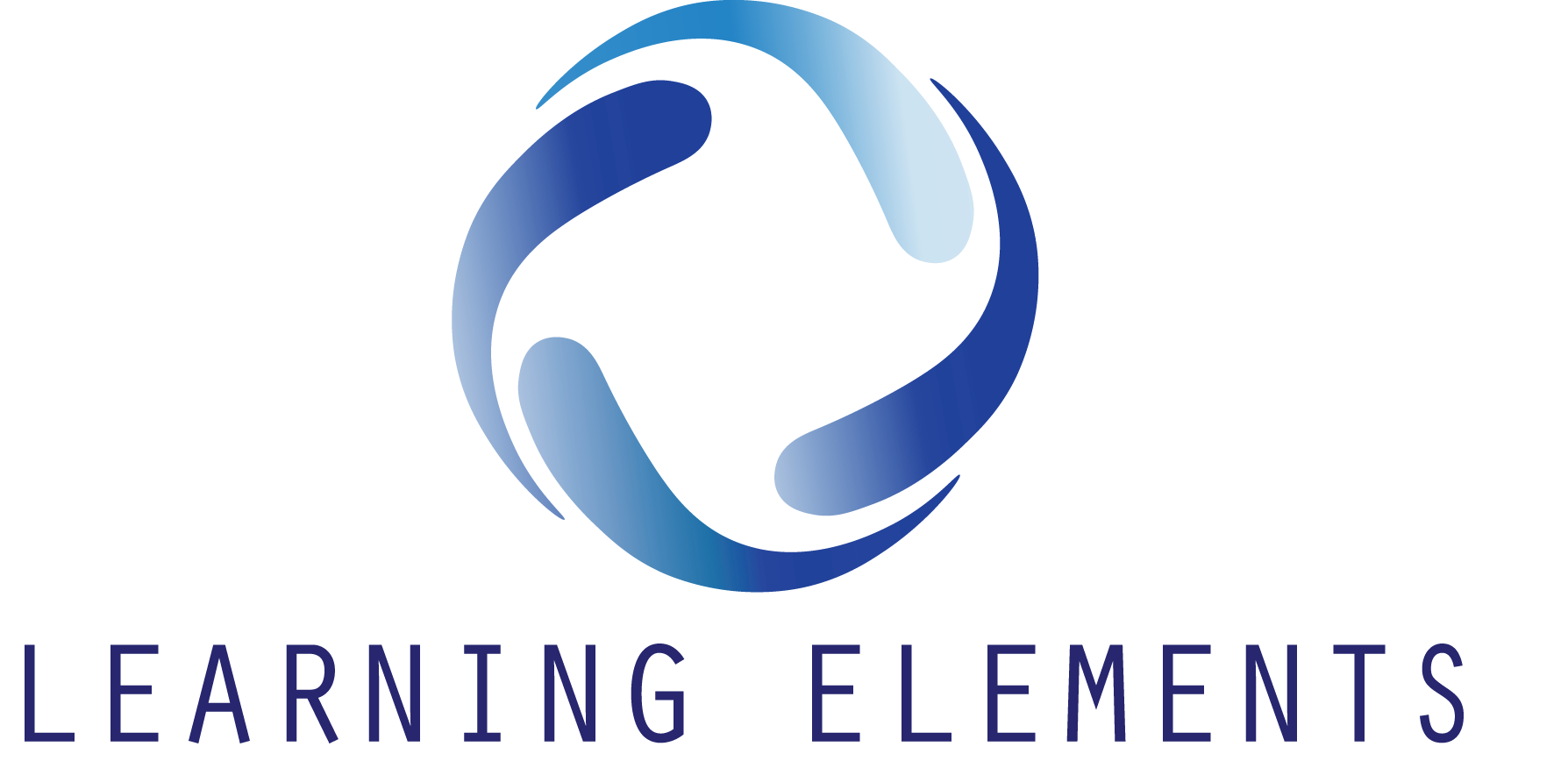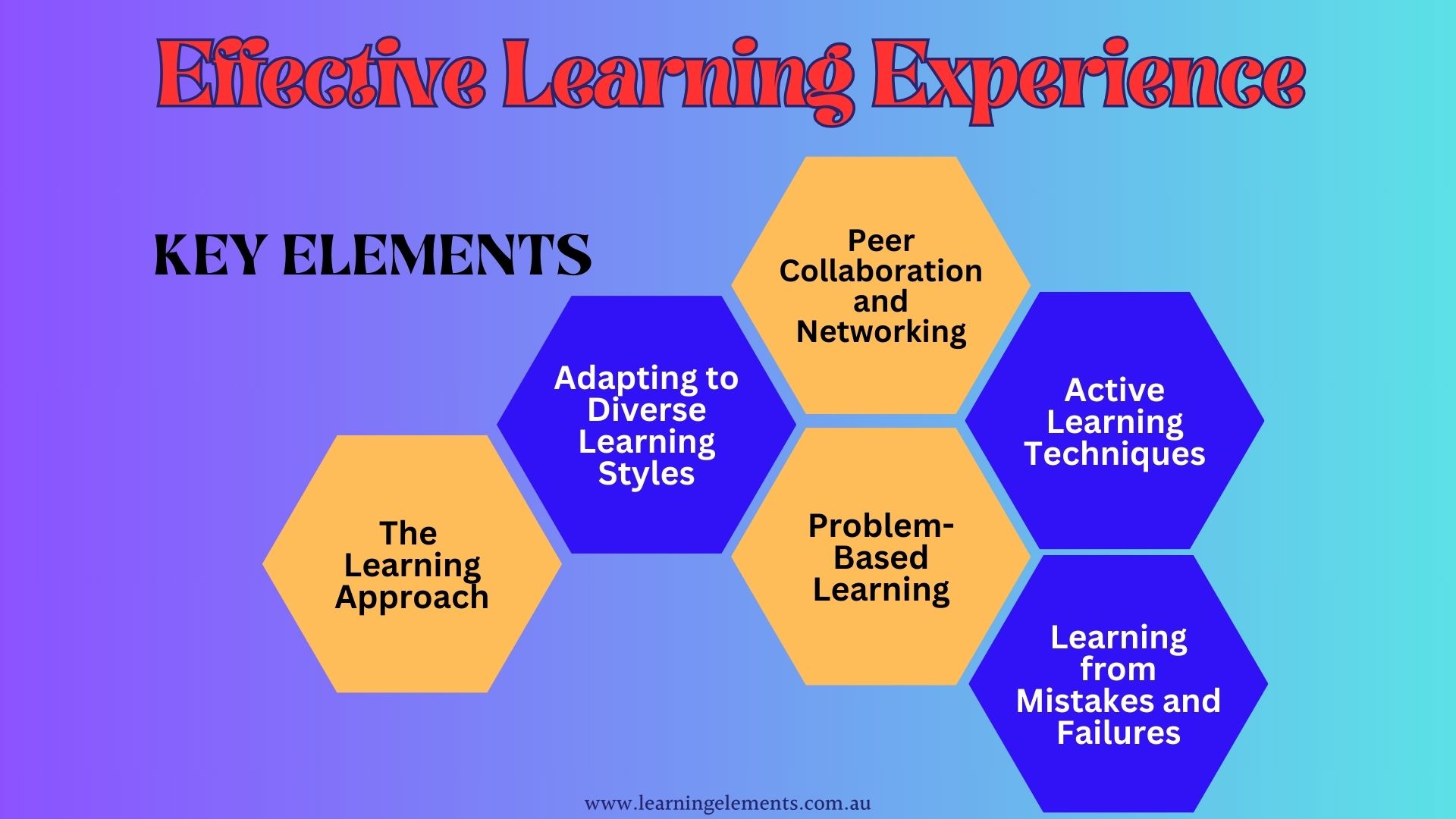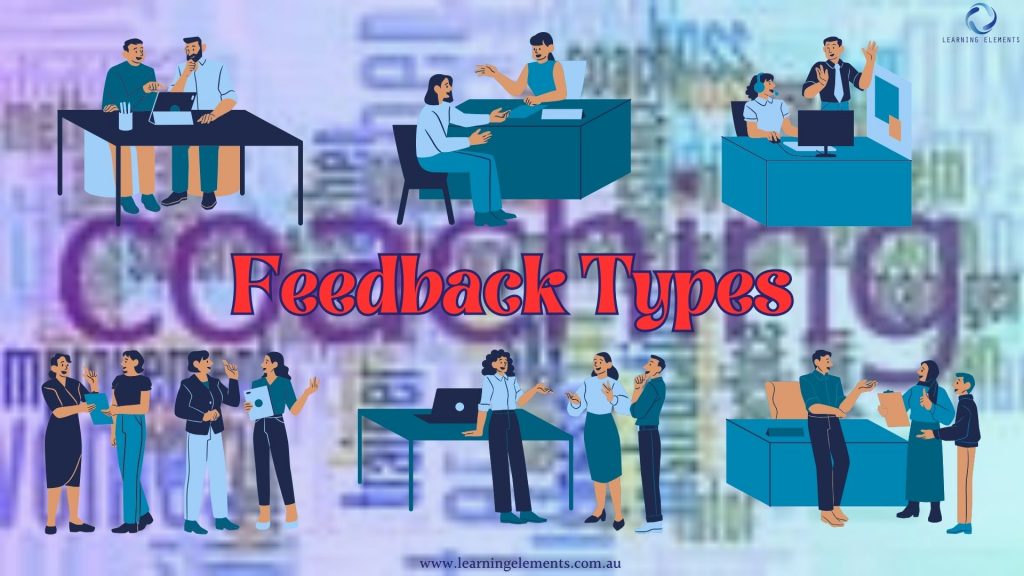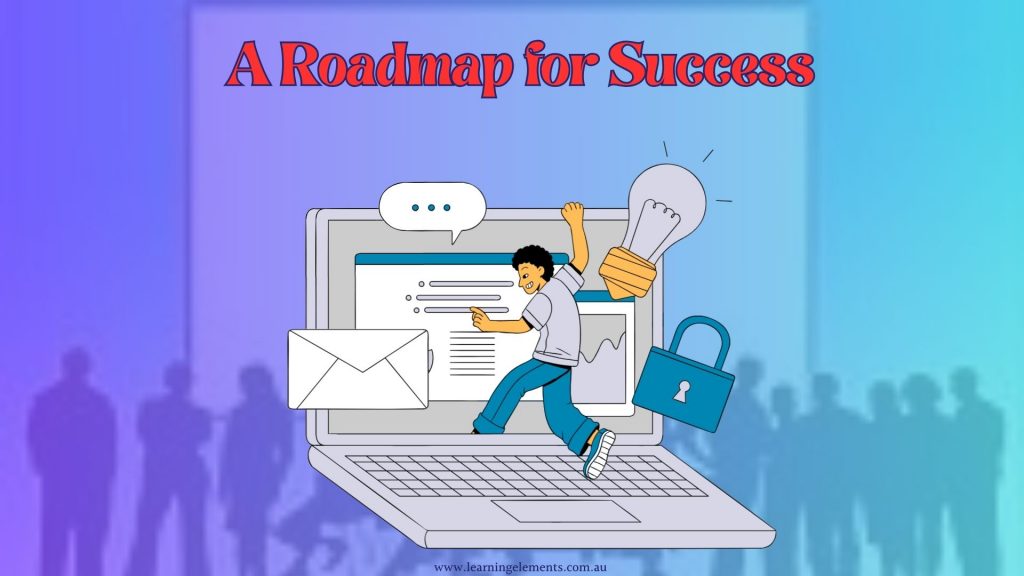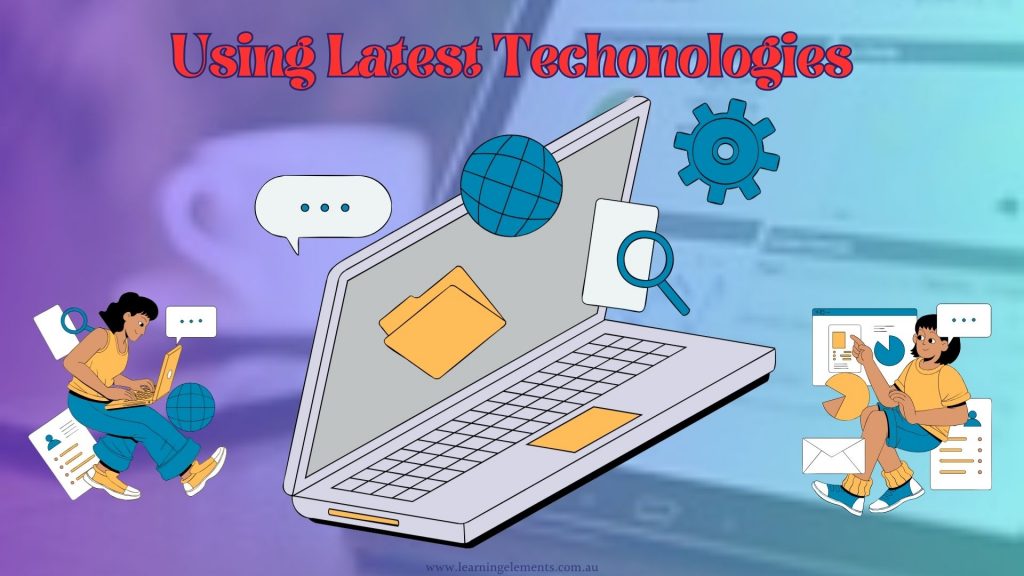The Top 10 Elements of Effective Learning for an Experience-Driven Success
What truly defines an effective learning experience? Effective learning is the cornerstone of personal and professional growth. In this article, we’ll delve into the several elements contributing to an effective learning experience and acquiring new knowledge and skills. From the freedom to choose your path to the importance of feedback and personalisation, we’ll explore the essential building blocks that empower individuals on their growth, development, and achievement journey. Additionally, we’ll navigate through the intricacies of these elements, shedding light on the transformative power they hold in shaping successful learning experiences.
What are the key elements of effective learning?
In education, the effectiveness of a learning experience can be a game-changer. Whether you’re a student, a professional, or someone simply looking to expand your horizons, understanding what makes learning impactful is crucial. Here are a few key elements that empower individuals to have an effective learning experience.
1. The Learning Approach
The learning approach is a fundamental element of an effective learning experience. It serves as the foundation upon which the entire educational journey is built. This element is all about the methodology and strategy you employ to acquire new knowledge and skills.
An effective learning approach involves more than just memorising facts or following a fixed curriculum. It’s about integrating knowledge, skills, and practical application to create a well-rounded understanding of the subject matter. Let’s delve deeper into what makes the learning approach one of the key elements of an effective learning experience:
–Understanding Comprehensive Learning
Effective learning goes beyond surface-level understanding. It encourages individuals to explore topics from various angles, connecting different aspects of knowledge. For instance, if you’re learning a new language, it’s not just about memorising vocabulary; it’s about understanding the culture, history, and context that shape that language.
–The Role of Critical Thinking
Critical thinking is at the heart of an effective learning approach. It involves evaluating, analysing, and synthesising information to make informed decisions. It encourages individuals to question assumptions, consider alternative perspectives, and draw logical conclusions. Critical thinking enables a deeper understanding of complex concepts and helps learners handle real-world challenges.
–Balancing Theory and Practice
An effective learning approach strikes a balance between theory and practice. It’s not enough to grasp theoretical concepts; learners must also apply their knowledge in practical situations. For instance, in science education, students learn scientific theories and conduct experiments to observe these theories in action. This hands-on experience reinforces the theoretical foundation.
–Problem-Solving Skills
Problem-solving is a central aspect of the learning approach. Effective learning encourages individuals to tackle real-world challenges and use their knowledge and skills to find solutions. Problem-based learning scenarios immerse learners in practical problems, promoting creative thinking and problem-solving abilities.
–The Relevance of Self-Directed Learning
While formal education plays a significant role, self-directed learning is equally important. Individuals should take initiative in exploring topics of personal interest, researching independently, and setting their learning goals. This proactive approach to learning empowers individuals to follow their passions and acquire expertise in areas that matter to them.
–Encouraging Lifelong Learning
The learning approach doesn’t end with a particular course or programme; it extends to lifelong learning. Effective learning encourages individuals to continue expanding their knowledge and skills beyond formal education. This dedication to ongoing self-improvement contributes to personal and professional growth.
2. Adapting to Diverse Learning Styles and Active Participation
Tailoring the learning experience to suit different learning styles is a cornerstone of effective education. It recognises that individuals have unique preferences for absorbing and retaining information. People have unique learning styles, and an effective learning approach acknowledges and adapts to these differences. Visual learners may benefit from diagrams and images, while auditory learners prefer lectures and discussions. A flexible approach accommodates these varied preferences, ensuring that information is presented in a way that resonates with individual learners.
Active participation is all about jumping into the learning pool, not just sitting by the side and watching. It’s like being part of an exciting conversation rather than eavesdropping. Imagine asking questions, joining discussions, and getting hands-on with what you’re learning. This kind of learning isn’t about being a silent observer; it’s about diving in and making waves.
When you actively participate, you’re not just memorising facts; you’re experiencing the subject firsthand. It’s the difference between hearing about how to ride a bicycle and actually getting on one and pedalling. By asking questions, you’re not just a listener but an explorer, seeking answers and understanding. And when you’re part of a discussion, you’re not just soaking in information; you’re contributing your insights and learning from others. Active participation isn’t just a nice-to-have in effective learning; it’s the engine that drives the whole process.
RELATED READ: Learning Styles Honey and Mumford
3. Peer Collaboration and Networking
Peer collaboration and networking are essential to effective learning, expanding opportunities beyond traditional education settings. These interactions create an environment rich in shared knowledge, diverse perspectives, and mutual support. They bring together individuals from varied backgrounds, fostering open dialogue and encouraging problem-solving through brainstorming and teamwork.
Moreover, peer collaboration offers a unique opportunity for peer teaching, reinforcing understanding, and promoting continuous learning. It enriches the educational experience, allowing students to learn from each other in relatable and accessible ways, enhancing their problem-solving skills, and broadening their horizons.
Networking, on the other hand, extends the learning experience beyond the immediate peer group. It involves establishing connections with individuals in the same field or industry. Building a professional network enables learners to tap into expertise, resources, and opportunities.
Do you want to expand your learning experience?
Explore Learning Elements Courses or Book a 30-minute Consultation for personalised insights.
Feel free to CONTACT US to connect/network and collaborate.
4. Problem-Based Learning
Problem-based learning (PBL) is an educational strategy that immerses learners in real-world challenges to stimulate critical thinking and the practical application of knowledge. Unlike traditional rote learning, PBL empowers students to take the lead in their education by presenting them with complex, open-ended problems mirroring real-life situations. These scenarios necessitate critical analysis and creative problem-solving, prompting students to utilise existing knowledge and actively seek new information to develop innovative solutions. It sparks curiosity as students become motivated to explore and thoroughly comprehend the problem. When searching for answers, they delve into various resources, conduct research, and collaborate with peers, enhancing their self-directed learning skills.
Critical thinking is a hallmark of PBL, as students learn to analyse problems from multiple perspectives, evaluate evidence, and make informed decisions. This approach cultivates practical skills and the ability to apply knowledge to real-world challenges while also promoting teamwork and communication through collaborative learning experiences. These interpersonal skills are invaluable in professional settings where effective collaboration is essential.
5. Active Learning Techniques and Mastery Learning
Active learning, one of the key elements of effective learning, involves students actively participating and engaging in the learning process, going beyond traditional passive classroom settings. It goes beyond the usual passive role of traditional classroom settings, encouraging students to actively immerse themselves in the learning process. This involves a variety of techniques, including group discussions, hands-on experiments, and interactive activities.
Hands-on activities and experiments offer a tangible approach to learning. They provide students with the chance to apply theoretical knowledge to real-world situations. Through experimentation, they can see cause-and-effect relationships in action, reinforcing their comprehension of complex concepts.
Active learning is more than just memorisation and passive listening. It’s a dynamic process that equips learners with the skills and knowledge to face real-world challenges with confidence.
Mastery learning is a strategic approach that emphasises profound understanding and competence over rapid progress. It centres on thoroughly mastering one skill or concept before advancing to the next, thereby ensuring a solid foundation and a strong grasp of each topic. By focusing on mastery, students develop a deep understanding of core concepts, enabling them to confidently apply their knowledge in practical situations. This approach caters to individual learning styles and abilities while supporting long-term retention, as learning is not rushed or superficial.
Mastery learning fosters self-confidence and self-efficacy as students experience a sense of accomplishment with each mastered topic. It encourages a growth mindset, inspiring students to perceive challenges and mistakes as opportunities for personal development. It’s an approach that values depth over breadth, resulting in a more solid educational foundation for learners.
6. Learning from Mistakes and Failures and Consistency and Routine
Embracing mistakes and failures as integral parts of the learning process is essential for personal growth and development. In effective learning, errors are viewed as valuable learning opportunities, not setbacks. Analysing mistakes and failures significantly contributes to individual progress, offering insights into areas that require improvement and fostering a culture of continuous improvement and self-awareness.
Moreover, learning from failures not only enhances personal resilience but also equips individuals with the skills needed to persevere and adapt in the face of challenges. It promotes critical thinking and problem-solving by encouraging individuals to question assumptions, explore alternative approaches, and deepen their understanding of complex issues.
Consistency and routine are crucial aspects of effective learning. Creating a structured routine for your learning activities helps maintain focus and discipline. Consistency ensures that you progress steadily and that your learning becomes a habit. When you establish a routine, you can tackle your learning goals with determination and efficiency.
7. Customise the Content and Use of Multimodal Resources
Personalisation stands as a powerful factor for making your learning experience truly effective. It’s like tailoring a suit to fit you perfectly—it ensures that the learning journey suits your individual needs and preferences like a glove. Think of it as having the freedom to pick the right tools, adjusting your study environment, or even having a mentor who really gets how you learn. By personalising your learning, you’re creating a unique learning path that feels like it was made just for you. It’s not just about following the crowd; it’s about making the content resonate with you in a way that keeps you engaged and eager to explore.
When you customise your learning, you choose materials that make sense, turning the complex into something comprehensible. You create an environment where you can focus and learn without distractions. And having a mentor who understands your style can be like having a personal guide on your journey, making sure you’re always on the right track. It’s the secret to effective learning—the ability to say, “This works for me, and I’m going to make the most of it.”
Having a range of resources at your disposal can make a difference. These resources could include books, videos, podcasts, and even hands-on experiences. Using a mix of these materials, you cater to different learning styles and make the learning process more engaging and effective. Some people learn better by reading, while others thrive when they see and hear. The beauty of using various resources is that it enhances your overall comprehension. It’s like having a toolkit with different tools for different tasks, ensuring you’re well-equipped to absorb and understand the subject matter from all angles.
8. Effective Time Management and Real-Life Application
Time is a precious resource, and effective learning knows how to make the most of it. Think of time management as the conductor of an orchestra, ensuring that every instrument plays in harmony. It’s all about dividing your time wisely among various learning activities and tasks so you’re not rushing at the last minute or feeling overwhelmed by procrastination.
When you manage your time effectively, you create a schedule that keeps you on track and helps you complete tasks on time. It’s like having a roadmap for your learning journey, making sure you don’t get lost in a maze of deadlines. You allocate time to each subject or task according to its importance, ensuring that nothing is neglected. Effective time management is like having a superpower; it helps you stay organised, reduce stress, and make the most out of every moment in your learning adventure. So, don’t just let time slip away; manage it like a pro and watch your learning flourish.
Learning isn’t just about accumulating knowledge; it’s about putting it to work in real-life situations. Applying what you’ve learned to practical scenarios, projects, or problems is like turning theory into reality. It’s when you see the tangible benefits of your knowledge. Real-life application bridges the gap between theory and practice, making your learning experience more meaningful and impactful.
9. Regular Self-Assessment and Personal Growth
Self-assessment is your secret weapon for personal growth. It’s all about periodically reviewing your progress, identifying your strengths, and pinpointing areas where you need to improve. Imagine you’re on a journey, and you regularly check the map to ensure you’re on the right path. Self-assessment does the same for your learning journey. It helps you refine your strategy—if you’re excelling in a certain area, you can focus on that; if you’re struggling in another, you can adjust your approach.
-Adaptability and Flexibility
Adaptability and flexibility are essential for effective learning. Learning isn’t a one-size-fits-all process. You must be adaptable and flexible, much like a chameleon that changes colours based on its environment. Just as you adjust your clothing for different seasons, you should adapt your learning approach based on your needs, challenges, and changing circumstances. Whether it’s switching study methods, timelines, or even the location where you learn, adaptability ensures you can thrive in any situation.
-Motivation and Passion
Motivation and passion are the driving forces behind a successful learning journey. Staying motivated and passionate about your learning goals is like having a powerful engine that propels you forward. When you’re excited about what you’re learning, it fuels your commitment to the process. It’s like having a favourite hobby that you can’t get enough of. Your passion sustains your interest over time, and you’re more likely to persevere through challenges. In learning, staying enthusiastic about your goals is like having a never-ending source of energy.
10. Feedback Loop: A Valuable Learning Tool
Learning is not a solitary journey; it’s a shared experience that thrives on collaboration and feedback. Imagine it as a conversation with a team of coaches who are there to provide insights and suggestions. This dynamic process of giving and receiving feedback creates a powerful feedback loop that enhances your learning.
-The Role of Feedback
Feedback helps you navigate challenges, refine your skills, and make continuous improvements. Just as a coach provides valuable input to help athletes perform better, feedback in education acts as your personal mentor. It points out what you’re doing well and areas where you can grow. Without feedback, it’s like navigating a dark room without a flashlight—you might stumble, but you won’t know why.
RELATED POST: The Pivotal Role of Feedback in Coaching and Training
-A Two-Way Street
In a collaborative learning environment, this feedback loop is a two-way street. You not only receive feedback but also offer it to your peers. Just as you benefit from the insights of others, your input can be a source of learning for them. It’s a supportive and enriching process where everyone’s experiences and perspectives come together.
-Continuous Improvement
Incorporating a feedback loop within learning environments fosters continuous improvement by ensuring that learners are consistently refining their skills and knowledge. Feedback isn’t just about identifying mistakes; it’s about using those insights to make small, ongoing adjustments. This process allows for steady progress, where each iteration brings enhanced understanding and performance. As learners act on feedback and see tangible improvements, they build confidence and competence, driving long-term success through gradual, consistent development.
Effective Learning Environment in Practice
The beauty of this feedback loop is that it promotes continuous improvement. It’s not about getting everything right from the start but about making progress through feedback and adjustments. With every round of feedback, you refine your skills, deepen your understanding, and perform better. It’s an invaluable tool in the key elements of effective learning experiences, and it’s what you need towards personal growth and development.
Educators and learners must work in tandem, focusing on the factors influencing the educational journey. For instance, by recognising the diverse learning styles within a group and tailoring activities accordingly, the learning experience becomes more inclusive and impactful. Aligning activities with set goals ensures that every learning moment contributes to a broader understanding of the subject matter. Moreover, integrating technology and active learning techniques adds a layer of dynamism to the educational process, making it more engaging and relevant. Assessment, when approached as a tool for continuous improvement rather than mere evaluation, becomes a valuable aspect of the learning environment. Regular self-assessment and constructive feedback loops create a culture of growth, where mistakes are seen as opportunities for learning and refinement.
Nurturing Success in Education
Creating an effective learning environment goes beyond physical classrooms; it involves a thoughtful and dynamic approach that addresses the diverse needs of learners, establishes clear goals, engages in meaningful activities, assesses progress, and fosters a positive and adaptable learning culture. Here’s an exploration of each key aspect:
- Understanding the Needs of Learners: Tailoring the learning experience to the unique needs and preferences of individual learners is the cornerstone of an effective environment. Recognising and accommodating diverse learning styles ensures that each learner can thrive, making education a more inclusive and impactful journey.
- Setting Clear Goals: Aligning learning activities with clear and achievable goals provides a roadmap for both educators and learners. These goals act as guiding beacons, shaping the educational journey and allowing individuals to understand the purpose and direction of their efforts.
- Engaging in Meaningful Activities: The heart of effective learning lies in engaging, hands-on activities. Integrating active learning techniques fosters engagement and deepens understanding. Whether through discussions, experiments, or real-world applications, meaningful activities transform education from a passive experience into an interactive and dynamic process.
- Assessing Progress: Implementing regular self-assessment practices and utilising constructive feedback loops are essential for personal growth. Assessment should not merely evaluate; it should serve as a tool for improvement, guiding learners in refining their skills and enhancing their understanding of the subject matter.
- Fostering a Positive and Adaptable Learning Culture: Cultivating a positive learning culture that encourages collaboration is vital. Embracing adaptability and flexibility ensures that education is not a rigid process but an evolving journey. A positive culture motivates learners to explore, share ideas, and overcome challenges with resilience.
Elements of Effective Learning While Harnessing the Latest Technology
Technological tools, such as interactive apps and online simulations, contribute to creating engaging and dynamic environments within the elements of effective learning. In a workplace setting, tools like storyboards prove beneficial for learners. Additionally, a time tracker facilitates efficient time management, progress tracking, and meeting deadlines as integral elements of effective learning. Visualising tasks and allocating time on a time tracker enhances organisational skills, enabling learners to prioritise responsibilities effectively.
Furthermore, project management software plays a crucial role in collaborative work environments, aligning with the elements of effective learning. This tool streamlines communication, task delegation, and progress tracking, making it essential for virtual, hybrid, or traditional learning environments.
Project management software can help learners and educators by:
- Streamlining communication, task delegation, and progress tracking among team members and stakeholders
- Providing a centralised dashboard that shows the status, timeline, and budget of each project
- Enhancing transparency, accountability, and efficiency in the learning process
- Integrating with other tools and platforms, such as e-learning software, learning management systems, and productivity apps.
- Developing not only subject-specific knowledge but also essential skills in teamwork, communication, and project coordination
Some of the leading project management software options are:
- Monday.com: Best for building custom workflows across teams
- Smartsheet: Best for Low-Code Project Management Automation
- Wrike: Best project management software for scaling organisations
- ClickUp: The Best project management software for remote work teams
- Jira: Best for dev teams
The strategic combination of the freedom to choose, an appreciation for hands-on learning, the integration of constructive feedback, and the utilisation of cutting-edge technological tools, such as time trackers and project management software, empowers individuals to transcend traditional learning limitations. Whether in formal education, exploring new interests, or refining professional skills, this integrated approach consistently fosters growth and achievement in the ever-evolving landscape of knowledge acquisition.
What makes an effective learning experience?
An effective learning experience is meaningful to learners. It should be clearly explained, focusing their attention on understanding the gap in their knowledge and enabling them to fill it. Detailed feedback is essential, allowing learners to monitor and evaluate their own knowledge, behaviour, strategies, and progress effectively.
What is an example of a good learning experience?
A good learning experience can be exemplified by a scenario where learners are engaged, motivated, and actively involved in the learning process. They should have access to well-structured content and have the flexibility to choose their learning path, ultimately leading to a deeper understanding of the subject matter.
How can the Learning Elements team help improve your learning experience?
The Learning Elements team is dedicated to enhancing your learning experience. We offer personalised guidance and support, helping you tailor your learning journey to your individual needs. Our expertise ensures that you receive the best possible resources, constructive feedback, and strategies to make your learning experience more effective and fulfilling.
Additionally, we also offer courses that fit your specific requirements. If you’d like a customised learning experience, you can book a 30-minute consultation with us, and we can discuss your unique needs and preferences in detail.
Conclusion
Effective learning is a strategically designed learning experience that provides the freedom to choose, emphasises the importance of experience, values feedback, monitors progress, personalises the content, and more. By focusing on these key elements of effective learning within your educational journey, you empower yourself to reach new heights of knowledge, skills, and personal growth. Whether you’re embarking on a formal education, exploring a new hobby, or seeking to enhance your professional skills, remember that these key elements form a dynamic and enriching path that is yours to craft and embrace.
